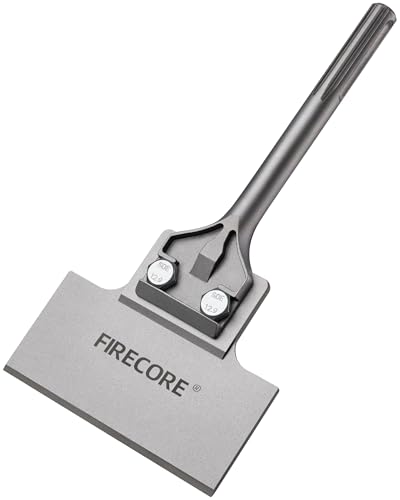




Cleaning jewellery is an essential part of maintaining its beauty and prolonging its life. Over time, jewellery can become dull and tarnished due to daily wear, exposure to chemicals, and contact with skin oils. Regular cleaning can restore its shine and brilliance, making it look as good as new.
When it comes to cleaning jewellery, it’s important to use the right techniques and products to avoid damaging the precious metals and gemstones. In this ultimate guide, we will discuss the best techniques for cleaning different types of jewellery, including gold, silver, platinum, and gemstone jewellery.
One of the most common methods for cleaning jewellery is using a mild detergent and warm water. This method works well for removing dirt and grime from most types of jewellery. Simply mix a few drops of mild dish soap with warm water, soak the jewellery in the solution for a few minutes, then gently scrub it with a soft brush. Rinse the jewellery thoroughly and pat it dry with a soft cloth.
For more delicate jewellery or pieces with gemstones, it’s best to use a jewellery cleaning solution specifically designed for that purpose. These solutions are gentle on the jewellery while effectively removing dirt and restoring its shine. It’s important to follow the instructions provided with the cleaning solution and avoid using excessive force or abrasive materials when cleaning jewellery.
In addition to regular cleaning, it’s important to store your jewellery properly to prevent it from tarnishing and getting scratched. Keep your jewellery in separate pouches or boxes to avoid any contact between pieces. Avoid exposing your jewellery to harsh chemicals, extreme temperatures, and direct sunlight, as these can cause damage.
With the right techniques and regular cleaning, you can keep your jewellery looking radiant and beautiful for years to come. Follow this ultimate guide to cleaning jewellery to ensure that your precious pieces shine bright and stand the test of time.
Why Clean Jewellery Regularly?
Cleaning your jewellery regularly is important for several reasons:
- Maintaining the Beauty: Over time, jewellery can accumulate dirt, oils, and other substances that can dull its appearance. Regular cleaning helps to restore the shine and brilliance of your jewellery, making it look brand new.
- Preventing Damage: Dirt and debris can cause scratches and other damage to your jewellery. Regular cleaning helps to remove these particles, reducing the risk of damage and extending the lifespan of your precious pieces.
- Hygiene and Health Benefits: Jewellery, especially rings, can trap bacteria, which can lead to skin irritations and infections. Regular cleaning helps to remove bacteria and keep your jewellery clean and safe to wear.
- Preserving Value: Proper care and maintenance, including regular cleaning, can help preserve the value of your jewellery. Clean and well-maintained jewellery generally retains its value better than poorly cared for pieces.
By cleaning your jewellery regularly, you can keep it looking its best, prevent damage, maintain good hygiene, and preserve its value. It is recommended to follow the specific cleaning instructions for each type of jewellery to ensure optimal results.
Choosing the Right Cleaning Method
When it comes to cleaning jewellery, it is essential to choose the right cleaning method based on the type of jewellery and the materials used. Using the wrong technique can damage or even ruin your precious pieces, so it’s crucial to understand how to clean them properly. Here are some factors to consider when choosing the right cleaning method:
Type of Jewellery
The type of jewellery you have determines the cleaning method you should use. Most jewellery can be categorized into two main types: precious metals (such as gold, silver, and platinum) and gemstones (such as diamonds, sapphires, and emeralds). Each type requires a different cleaning approach to ensure their longevity and shine.
Metal Alloys
Some jewellery pieces are made from metal alloys, which can include mixtures of gold, silver, or other metals. These alloys may require special cleaning methods to prevent tarnishing or damage. It’s important to consult the manufacturer’s instructions or a professional jeweller to determine the appropriate cleaning technique for your specific alloy.
Sensitive Gemstones
Certain gemstones are more delicate or porous than others and require special care. For example, opals, pearls, and turquoise can be easily damaged by harsh chemicals or excessive moisture. It’s crucial to research the cleaning requirements for each gemstone in your jewellery collection and use mild cleaning solutions to avoid any harm.
Cleaning Solutions
There are various cleaning solutions available for jewellery, including commercial cleaners, home remedies, and ultrasonic cleaners. It’s important to choose a cleaning solution that is suitable for your specific type of jewellery. Avoid using harsh chemicals or abrasive materials that can scratch or damage the surface of your jewellery.
Professional Cleaning
If you are unsure about the best cleaning method for your jewellery or if you have valuable or antique pieces, it is recommended to seek professional cleaning. Professional jewellers have the expertise and equipment to clean your jewellery safely and effectively, ensuring its longevity and maintaining its value.
In conclusion, choosing the right cleaning method is crucial for keeping your jewellery in pristine condition. Consider the type of jewellery, metal alloys, sensitive gemstones, suitable cleaning solutions, and the option of professional cleaning. By taking the necessary precautions, you can ensure that your jewellery remains beautiful and sparkling for years to come.
Top Tips for Cleaning Jewellery at Home
1. Gather the necessary supplies
Before you start cleaning your jewellery, make sure you have the following supplies:
- Gentle dish soap
- Warm water
- Soft-bristle toothbrush
- Microfiber cloth
2. Remove any dirt or debris
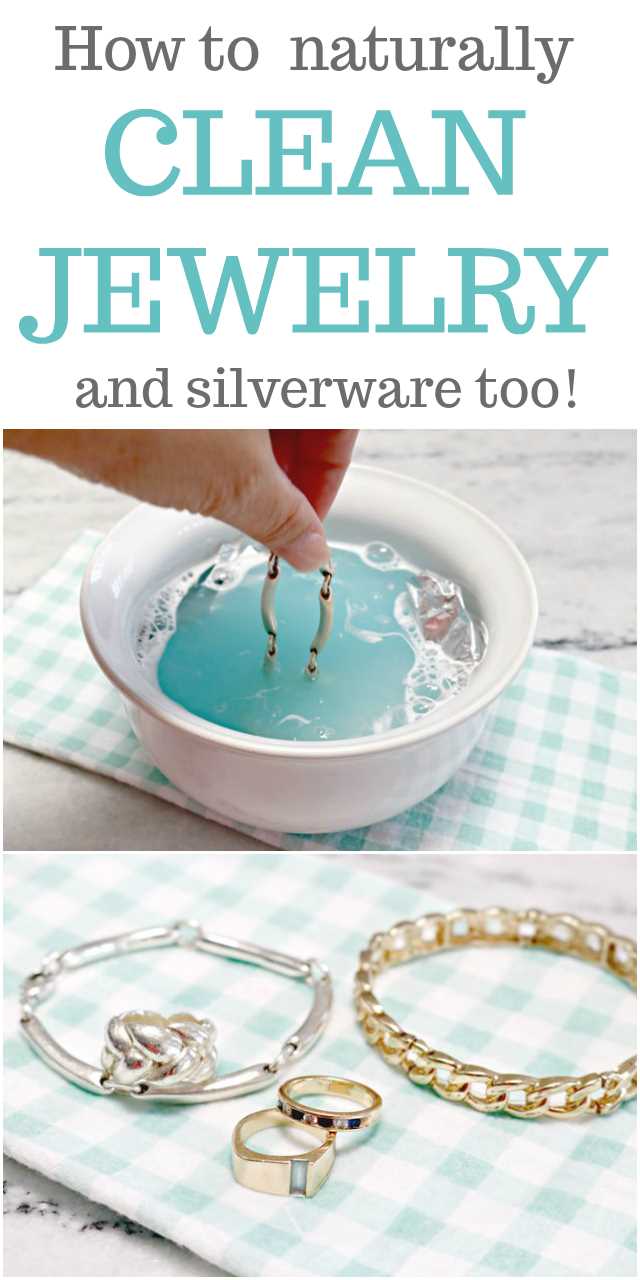
Before you can clean your jewellery, you’ll want to remove any dirt or debris. Gently brush the surface of your jewellery with a soft-bristle toothbrush to loosen and remove any particles.
3. Prepare a cleaning solution
In a small bowl, mix a few drops of gentle dish soap with warm water. Be sure to use a dish soap that is free of any harsh chemicals or abrasives. Stir the solution until it becomes sudsy.
4. Soak your jewellery
Place your jewellery in the bowl of soapy water and let it soak for a few minutes. This will help to loosen any grime or residue on the surface.
5. Gently clean with a toothbrush
Remove your jewellery from the soapy water and use the soft-bristle toothbrush to gently scrub away any remaining dirt or grime. Be sure to pay attention to any crevices or hard-to-reach areas.
6. Rinse thoroughly
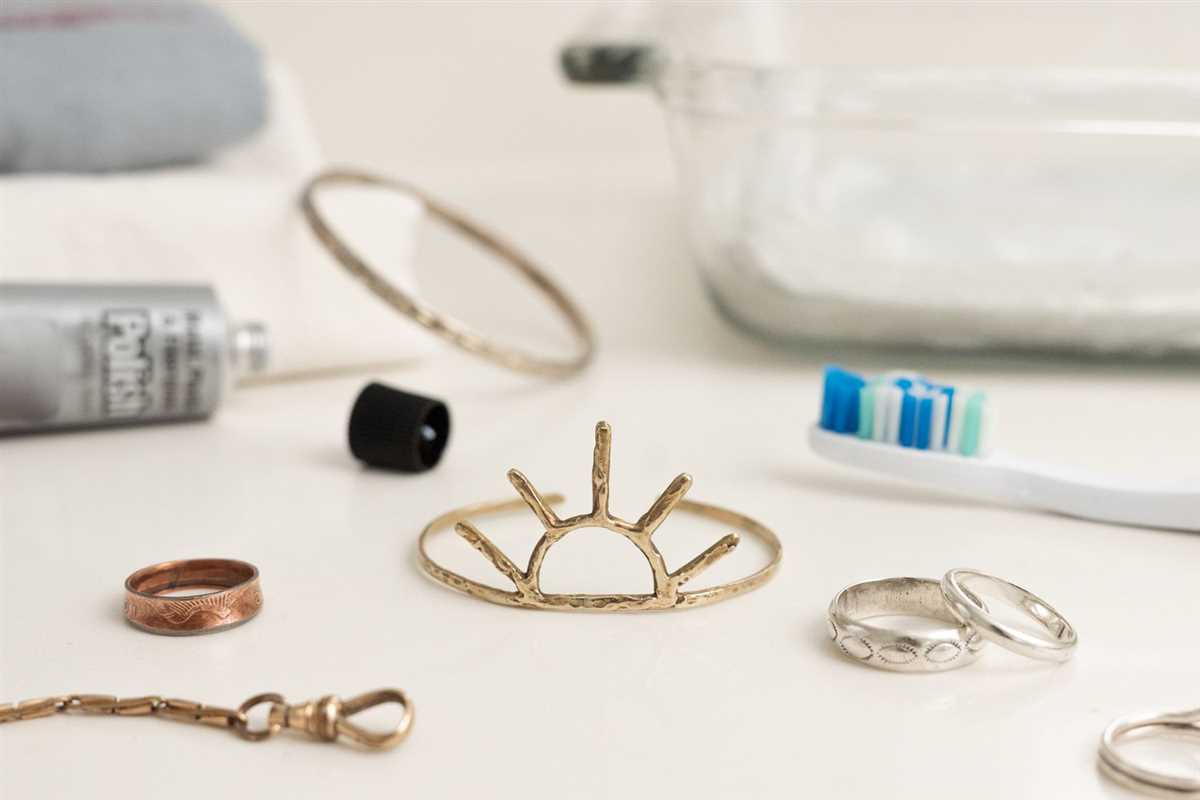
After cleaning, rinse your jewellery under warm water to remove any soap residue. Be sure to thoroughly rinse away all of the soap to avoid any potential damage to your jewellery.
7. Dry with a microfiber cloth
Use a microfiber cloth to gently pat your jewellery dry. Avoid using paper towels or rough materials that can scratch the surface of your jewellery.
8. Polish if necessary
If your jewellery still appears dull or tarnished, you may want to consider using a jewellery polishing cloth or a special jewellery cleaner. Follow the instructions provided with the polishing cloth or cleaner to restore the shine to your jewellery.
9. Store properly
Once your jewellery is clean and dry, store it in a cool, dry place to prevent tarnishing or damage. Consider using a jewellery box or a soft pouch to protect your pieces from scratches or moisture.
10. Repeat as needed
Regularly cleaning your jewellery will help to maintain its beauty and extend its lifespan. Make it a habit to clean your pieces every few months or as needed to keep them looking their best.
Conclusion
Cleaning your jewellery at home can be a simple and effective way to keep your pieces looking their best. By following these top tips, you can safely and efficiently clean your jewellery, allowing it to shine and sparkle once again.
Professional Cleaning Techniques
Ultrasonic Cleaning
One of the most effective professional cleaning techniques for jewellery is ultrasonic cleaning. This method uses high-frequency sound waves to create tiny bubbles that safely remove dirt, grime, and tarnish from the surface of the jewellery.
Steam Cleaning
Steam cleaning is another popular method used by professionals to clean jewellery. It involves using pressurized steam to remove dirt and debris from hard-to-reach areas. This technique is gentle and effective, making it suitable for delicate and intricate jewellery pieces.
Polishing
Polishing is an essential step in professional jewellery cleaning. It helps to restore the shine and brilliance of the jewellery. Professionals use various polishing tools and compounds to gently remove scratches, tarnish, and dullness from the surface of the jewellery.
Chemical Cleaning
Chemical cleaning involves using specialized cleaning solutions and chemicals to remove stubborn stains, tarnish, and dirt from the jewellery. Professionals carefully select the appropriate cleaning solution based on the type of metal and gemstones used in the jewellery to ensure safe and effective cleaning.
Inspecting and Repairing
Professional jewellers also inspect the jewellery for any damages or loose stones during the cleaning process. If any issues are found, they can repair or reset the pieces to ensure the jewellery is in excellent condition.
Final Touches and Packaging
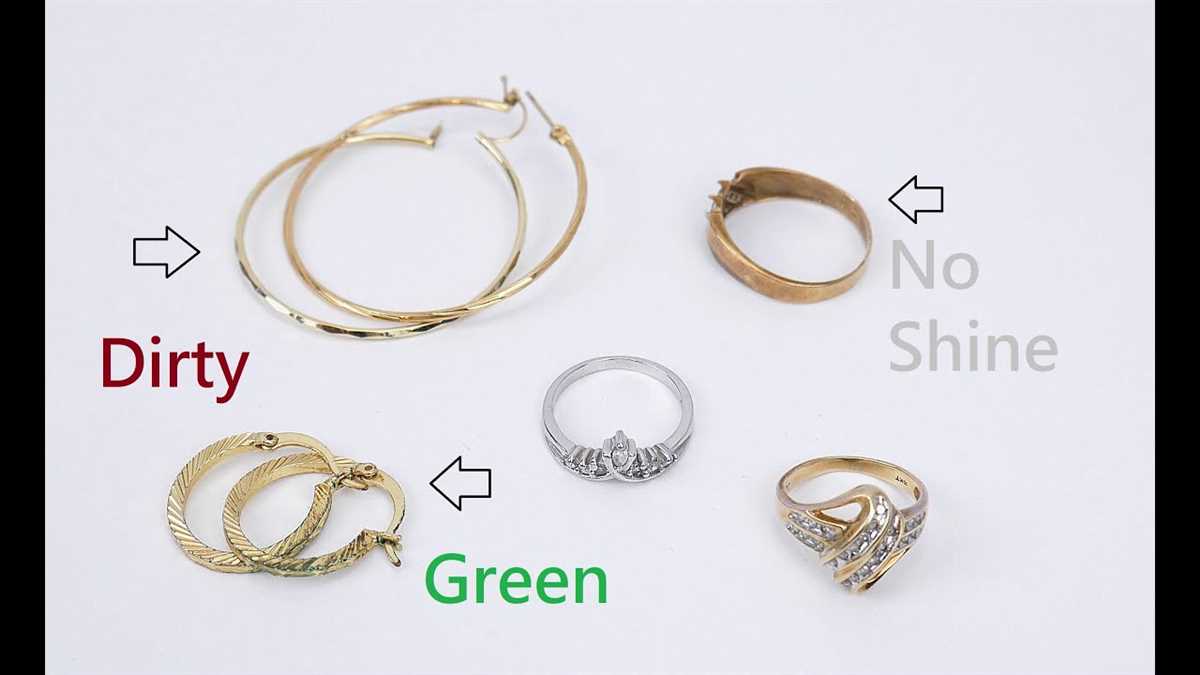
After the cleaning process, professionals give the jewellery a final touch by buffing and polishing it to enhance its shine. They then carefully package the jewellery to protect it from scratches, dust, and other potential damages.
In conclusion, professional cleaning techniques for jewellery, such as ultrasonic cleaning, steam cleaning, polishing, chemical cleaning, inspecting and repairing, and final touches and packaging, ensure that your jewellery is thoroughly cleaned and restored to its original beauty.
Preserving the Shine and Luster of Jewellery
1. Clean your jewellery regularly
Regular cleaning is essential for maintaining the shine and luster of your jewellery. It helps to remove dirt, oils, and other substances that can dull its appearance over time. To clean your jewellery:
- Prepare a cleaning solution by mixing mild dish soap with warm water.
- Soak your jewellery in the solution for a few minutes.
- Gently scrub the jewellery using a soft-bristle toothbrush.
- Rinse the jewellery under running water.
- Pat dry with a soft, lint-free cloth.
2. Avoid wearing jewellery in certain situations
Some activities can increase the chances of your jewellery losing its shine. To preserve its luster, it is recommended to avoid wearing jewellery:
- During physical activities such as exercising or playing sports.
- When applying lotions, creams, or perfumes.
- When swimming in chlorinated pools or hot tubs.
- When cleaning with harsh chemicals.
3. Store your jewellery properly
Proper storage can prevent scratches, tangles, and other damage that can affect the shine and luster of your jewellery. Here are some tips for storing jewellery:
- Keep each piece of jewellery separate to prevent scratching.
- Store them in a cool, dry place away from direct sunlight.
- Consider using individual jewellery bags or soft cloth pouches to protect them.
- Avoid storing jewellery in humid areas or near sources of heat.
4. Have your jewellery professionally cleaned
While regular cleaning at home is important, it is also beneficial to have your jewellery professionally cleaned on occasion. A professional jeweller can use specialized equipment and techniques to restore the shine and luster of your jewellery.
5. Check for loose stones
Regularly inspect your jewellery for any loose stones or settings. Loose stones can cause further damage if not addressed promptly. If you notice any issues, take your jewellery to a professional to have it repaired to prevent further damage and ensure its shine and luster are preserved.
6. Avoid using abrasive cleaners
Avoid using harsh or abrasive cleaners on your jewellery as they can scratch or damage the surface. Stick to mild cleaning solutions and gentle methods to preserve the shine and luster of your jewellery.
7. Schedule regular maintenance
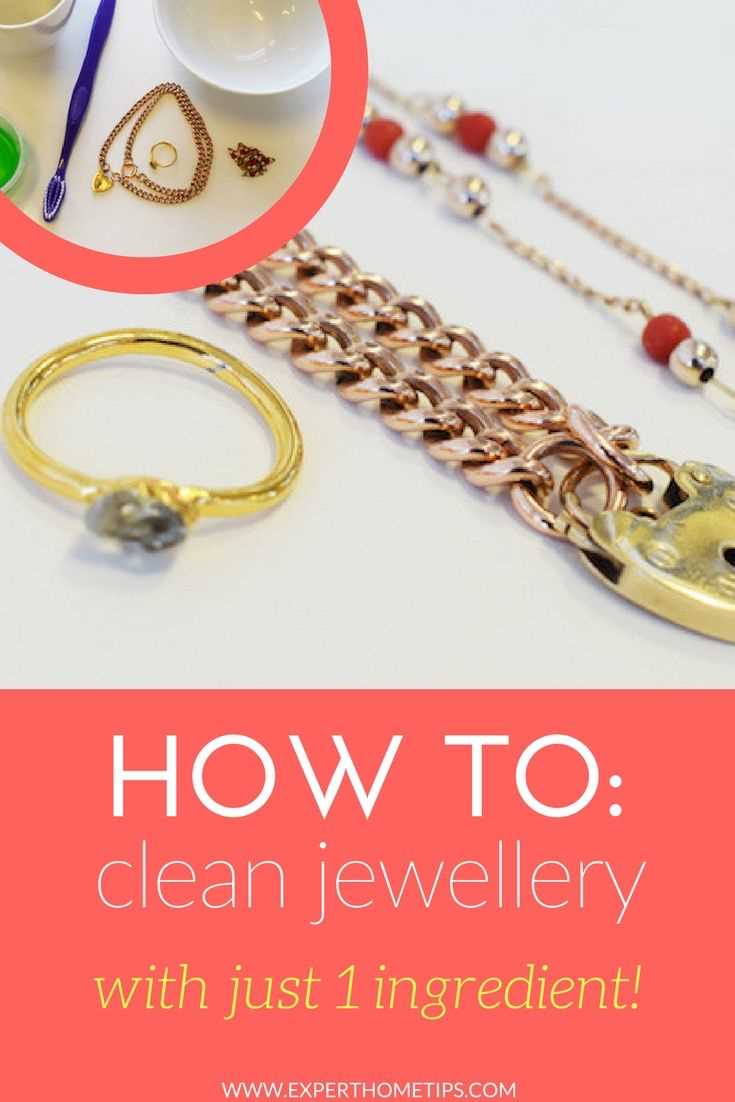
Consider scheduling regular maintenance visits with a jeweller to keep your jewellery in optimal condition. They can inspect your pieces, clean them professionally, and address any issues that may affect their shine and luster.
| Reminder | Description |
|---|---|
| Regular Cleaning | Clean your jewellery regularly using mild dish soap and warm water. |
| Avoid Certain Situations | Avoid wearing jewellery during physical activities or when in contact with chemicals. |
| Proper Storage | Store your jewellery separately in a cool, dry place away from sunlight. |
| Professional Cleaning | Have your jewellery professionally cleaned by a jeweller. |
| Check for Loose Stones | Regularly inspect your jewellery for loose stones or settings. |
| Avoid Abrasive Cleaners | Avoid using harsh or abrasive cleaners on your jewellery. |
| Schedule Regular Maintenance | Schedule maintenance visits with a jeweller for optimal care. |
FAQ
What are the best techniques for cleaning silver jewellery?
When it comes to cleaning silver jewellery, there are a few techniques you can try. One popular method is to create a paste using baking soda and water. Apply the paste to the jewellery, gently scrub it with a soft-bristled toothbrush, and then rinse it off. Another technique is to soak the silver jewellery in a mixture of warm water and mild dish soap, then rinse and pat dry. If your silver jewellery is heavily tarnished, you may want to use a silver polishing cloth or a silver cleaning solution.
How do I clean my gold jewellery?
Gold jewellery can be cleaned using a few different methods. One simple technique is to mix a few drops of mild dish soap with warm water and soak your gold jewellery for a few minutes. You can then gently scrub it with a soft brush, rinse, and pat dry. Another method is to soak the gold jewellery in a mixture of warm water and ammonia for about 15 minutes, then rinse and dry. If your gold jewellery has gemstones, make sure to check if they can be cleaned with ammonia before using this method.
What is the best way to clean diamond jewellery?
Diamond jewellery can be cleaned using a mixture of warm water and mild dish soap. Soak the diamond jewellery in the solution for about 20-30 minutes, then scrub it gently with a soft brush. Rinse the jewellery thoroughly and pat dry. If your diamond jewellery still appears dull or dirty, you can make a solution with equal parts ammonia and water and repeat the cleaning process. However, it is important to remember that certain diamond jewellery pieces may require professional cleaning to avoid any damage.
How should I clean my pearl jewellery?
Pearl jewellery should be cleaned with extra care to avoid any damage. The best method is to simply wipe the pearls with a soft, damp cloth after each wearing to remove any dirt or oils. Make sure to keep your pearls away from harsh chemicals, including perfumes and hairspray. If your pearl jewellery requires a deeper clean, use a small amount of mild soap mixed with lukewarm water. Dip a soft cloth or brush into the soapy solution and gently clean the pearls. Rinse the pearls with clean water and pat dry. Do not soak your pearl jewellery in water as it can weaken the silk thread.











